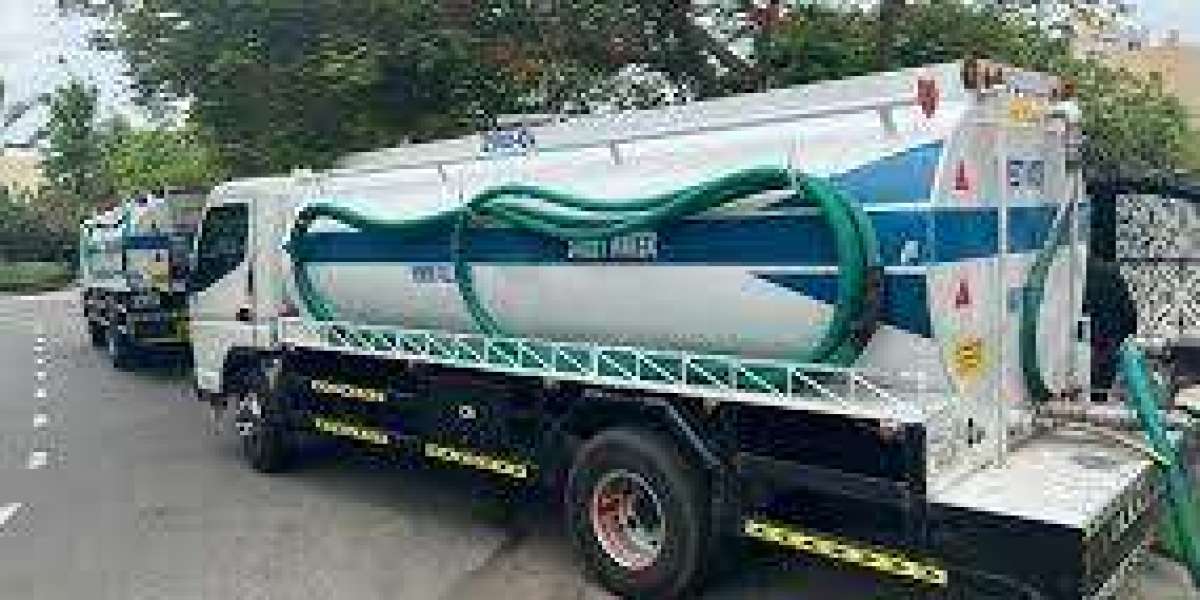When it comes to pool maintenance, the quality of your water is everything. Maintaining clear, clean water not only ensures that your pool is aesthetically pleasing but also guarantees the health and safety of those who enjoy it. Whether you're a seasoned pool owner or a new one, managing your pool water supply effectively is crucial. In this article, we’ll walk through best practices that will help you achieve pool perfection by keeping your water clean, balanced, and inviting.
Regular Water Testing and Chemical Balance
pH and Chlorine Levels
One of the most fundamental steps in pool water delivery in Dubai is testing and balancing the water’s chemistry. The pH level of your pool should ideally be between 7.2 and 7.8. This range helps ensure swimmer comfort, while also preventing damage to your pool equipment. If the pH is too high, the water can become cloudy, and if it's too low, it may irritate the skin and eyes of swimmers.
Chlorine is equally important—it’s the sanitizer that keeps your pool water free of harmful bacteria and algae. Maintaining a chlorine level between 1 and 3 parts per million (ppm) is ideal for keeping your pool water safe and disinfected. Regular testing of both pH and chlorine levels ensures that your pool is balanced and ready for swimming.
Alkalinity and Calcium Hardness
Alkalinity acts as a buffer to stabilize pH levels. If your pool’s alkalinity is too low, pH levels can fluctuate wildly, making it difficult to maintain the right balance. Aim for an alkalinity range of 80 to 120 ppm.
Calcium hardness is another key factor in pool water chemistry. High calcium levels can cause scaling and cloudy water, while low calcium levels can lead to corrosion of pool surfaces and equipment. The ideal calcium hardness level is between 200 and 400 ppm. Regular testing and adjustments help maintain these key elements, ensuring your pool water stays healthy.
Efficient Pool Filtration System
Pool Filter Types
An effective filtration system is essential for maintaining clean pool water. There are three main types of pool filters: sand, cartridge, and diatomaceous earth (DE). Each has its pros and cons:
- Sand filters are the most common and work by trapping debris in a bed of sand. They're relatively low maintenance and cost-effective.
- Cartridge filters provide better filtration and require less backwashing, but they need to be cleaned or replaced periodically.
- DE filters offer the highest level of filtration and remove the finest particles, but they require more maintenance.
Choosing the right filter for your pool depends on your needs, but each type plays a critical role in keeping your pool water clean and clear.
Maintaining Your Filter
Regardless of the type of filter, it’s essential to clean and maintain it regularly. Over time, filters become clogged with debris and dirt, which can cause them to work less efficiently. Cleaning your filter periodically, following the manufacturer's instructions, and replacing it when necessary will ensure that it continues to function at its best.
Keeping Your Pool Clean and Debris-Free
Skimming and Vacuuming
Skimming the surface of your pool with a net helps remove leaves, bugs, and other floating debris. This should be done daily, especially during the fall when debris tends to accumulate more quickly. Pool vacuuming is another key task, ensuring that dirt and particles that have settled on the bottom are removed. Whether you use a manual vacuum or an automatic one, regular vacuuming helps maintain water clarity.
Cleaning Pool Walls and Floors
Dirt and grime can build up on the walls and floor of your pool, especially in areas with poor circulation. Use a pool brush to scrub the walls, tiles, and pool floor to prevent stains and algae buildup. A routine cleaning schedule—at least once a week—will ensure your pool remains spotless and inviting.
Preventing Algae Growth and Cloudy Water
Algaecides and Pool Shocking
Algae is a common issue for pool owners, but it can be easily prevented with regular use of algaecides. These chemicals help prevent algae from blooming and turning your water green. Additionally, “shocking” your pool with a high dose of chlorine helps to eliminate bacteria, kill algae spores, and restore water clarity. Shocking is typically done once a week or after heavy pool use.
Addressing Cloudy Water
Cloudy pool water is often caused by improper chemical balance or poor filtration. If your pool water is cloudy, first check the pH, chlorine, and alkalinity levels. Adjust them if necessary, and ensure that your filter is working properly. If the issue persists, shock the pool to break down contaminants and improve clarity.
Managing Pool Water Levels
How to Maintain Proper Water Levels
The right water level is essential for effective filtration. Ideally, your pool water level should be in the center of the skimmer’s opening. If the water level is too high or too low, the skimmer will not be able to function properly, leading to poor water circulation and filtration. Regularly check your pool’s water level and adjust as necessary.
Dealing with Water Loss and Evaporation
Pools naturally lose water over time due to evaporation, splash-out, and even leaks. To keep your pool’s water levels stable, monitor evaporation rates and top up the water regularly. In areas with hot climates, you may need to add water more frequently to compensate for evaporation.
Click here to read more: https://www.sttransport.ae/swimming-pool-water-supply-in-dubai/
Protecting Your Pool from Contaminants
Preventing Contaminants from Entering
Keeping contaminants out of your pool is key to maintaining water quality. Encourage swimmers to shower before entering the pool to remove oils, sunscreen, and dirt. Also, avoid allowing food or beverages near the pool to prevent accidental spills and contamination.
Using Pool Covers and Netting
Pool covers are an excellent way to protect your pool from debris and contaminants when it’s not in use. Covers help reduce the frequency of cleaning and keep the water free from leaves, dirt, and insects. Netting can also be used to cover the pool when it’s open to prevent debris from entering.
Frequently Asked Questions (FAQs)
How often should I test my pool water?
Test your pool water at least once a week to ensure the right chemical balance.What should I do if my pool water turns green?
Green water is usually caused by algae. Use an algaecide and shock the pool to clear it up.How do I clean my pool filter?
Follow the manufacturer's instructions for cleaning or replacing your pool filter, typically every 3-6 months.Why is my pool water cloudy?
Cloudy water can be caused by poor filtration or unbalanced chemicals. Check your pH and chlorine levels, and clean your filter.Can I use a pool cover year-round?
Yes, pool covers








